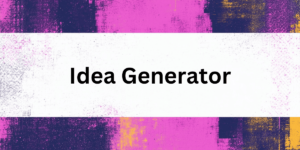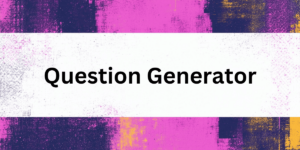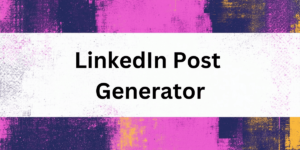Bold new opportunities for businesses and creatives alike have arrived in the form of AI-generated images. However, with those opportunities come important legal considerations, as the ownership of AI-generated images and their copyright is not always clear. In this article, you will learn everything you need to know about AI-generated images, how to legally sell them, and how to leverage them to benefit your business.
AI-Generated Images: The Basics
AI-generated images are images that are created solely by an artificial intelligence program using machine learning models to analyze and generate pictures. Unlike images that are traditionally produced by human artists, AI-generated images are made using algorithms and lots of data. These images are being used more and more by businesses for their digital content.
By using machine learning models, AI-generated images can create incredibly detailed and lifelike pictures that can even surpass the level of a human-generated image. This is because AI can analyze thousands of images to generate new and unique pictures that humans may not have ever thought of before.
How does AI generate images? First, the machine learning models or neural networks are trained on a dataset of images. Next, the program will find patterns in the data and create new designs. Finally, the AI will generate a new image based on those patterns and designs.
Legalities of Selling AI Images
The question of who owns the rights to AI-generated images is one of the most important legal considerations surrounding this topic. While AI may have produced the images, it’s not clear who holds the legal rights to the pictures that were created by the program.
There are also concerns regarding copyright and intellectual property laws. For example, if you use an image that was generated by AI in your digital marketing campaigns, who would be liable if the image infringes on someone’s intellectual property rights?
There have already been cases of AI image copyright infringement, where AI-generated images were found to have similarities to pictures that were previously copyrighted by another entity. AI-generated images’ legality is still a gray area and requires consultation with a legal professional.
Opportunities for AI Image Sales
Despite the legalities surrounding AI-generated images, there are many opportunities for businesses and creatives to benefit from selling them. For instance, these images can be used in ads, digital content, and websites. Businesses can even create and sell their own unique images with AI technology.
There are several potential revenue streams that can come from selling AI images, such as licensing fees, royalties, and direct sales of digital images. Additionally, businesses can use AI-generated imagery to create content that resonates with audiences and generates traffic to their website.
AI-generated images can also benefit consumers. For example, e-commerce websites can use AI images to create and display images of products in ways that more accurately depict the product and help to sell it.
Useful Tips for Selling AI Images
- Market your AI images by showcasing their unique features and capabilities on social media platforms and websites.
- Protect your images by adding watermarking or other forms of digital security.
- Provide a unique value by creating and selling images that cannot be found elsewhere.
- Stay up to date by keeping abreast of new developments in AI-generated image technology and the latest legal and ethical considerations.
- Collaborate with others in the field to gain insights and expand your market.
Related Questions
Are AI-generated images as valuable as traditionally generated ones?
While AI-generated images can be highly valuable and versatile, it is still a relatively new technology, and traditional images will always hold a place in the art world. It ultimately depends on the intended use and the level of creativity needed for the project.
Can AI-generated images completely replace human-created ones?
No. While AI-generated images can be highly effective in certain applications, they are not capable of replacing the unique creative vision and skills of human artists.
What does the future hold for AI-generated images and their place in the market?
The future looks bright for AI-generated images, as they continue to be developed and refined for new uses. It’s inevitable that AI will become even more important in the art and design world, and new opportunities for business and creatives will arise.
Other people asked
What types of AI-generated images are commonly sold in the market?
Almost any type of image can be generated using AI, but some of the most common types available for sale include stock photos, abstract designs, and digital art.
How is the ownership of AI-generated images determined?
The ownership of AI-generated images is currently a gray area and may require consultation with legal experts to determine who owns the rights to use, distribute, and profit from them.
Are there any legal restrictions on selling AI-generated images?
Legal restrictions may exist on selling AI-generated images, depending on various factors such as the intended use, ownership of the image, and the copyright or intellectual property status of the image.
What are some of the ethical considerations to be addressed when selling AI-generated images?
One ethical concern is the potential for AI-generated images to perpetuate negative or harmful stereotypes, especially when it comes to facial recognition and biometric data. Additionally, there may be concerns around the use of AI-generated images for propaganda, fake news, or other controversial purposes.
How do the prices of AI-generated images compare to those of traditionally created images in the market?
The prices of AI-generated images vary widely, depending on the type, quality, and the intended use of the image. In some cases, AI-generated images can be more affordable than traditionally created images, but prices will ultimately be determined by market demand and many other factors.
AI-generated Images and the Future
AI-generated images represent an exciting new frontier for businesses and creatives, offering them new ways to create engaging content and reach their audiences. However, it’s important to approach this technology with caution, as there are important legal and ethical considerations to keep in mind.
Businesses and creatives should be aware of the potential legal issues surrounding AI-generated images and consult with legal professionals before using them for commercial purposes. Additionally, they should take steps to protect their images from unauthorized use, such as adding watermarks or other forms of digital security.
When it comes to selling AI-generated images, businesses and creatives should focus on providing a unique value and marketing their images through social media and other digital channels. They should also collaborate with others in the field to gain insights and expand their market.
Looking ahead, the future of AI-generated images looks bright, as this technology continues to be developed and refined. However, it’s important to proceed with caution and fully consider the legal and ethical implications of using AI-generated imagery in commercial applications.
With the right approach, businesses and creatives can safely and effectively use AI-generated images to create unique and engaging content that resonates with their audiences and drives growth.
Conclusion
In conclusion, the use of AI-generated images presents an exciting new opportunity for businesses and creatives, but it’s important to be aware of the legal considerations and ethical implications. By taking the necessary precautions and using the tips outlined in this article, you can safely and profitably sell AI images. In the end, the question of whether AI images can be sold is not an issue in itself, but more a matter of understanding the technology and the market for it.

